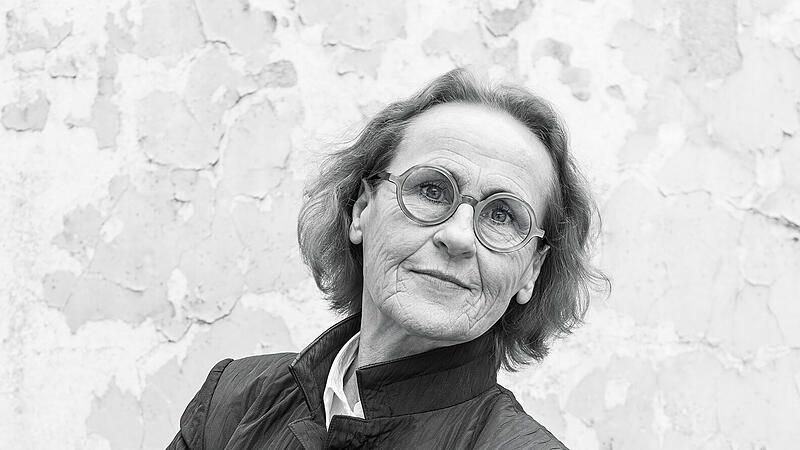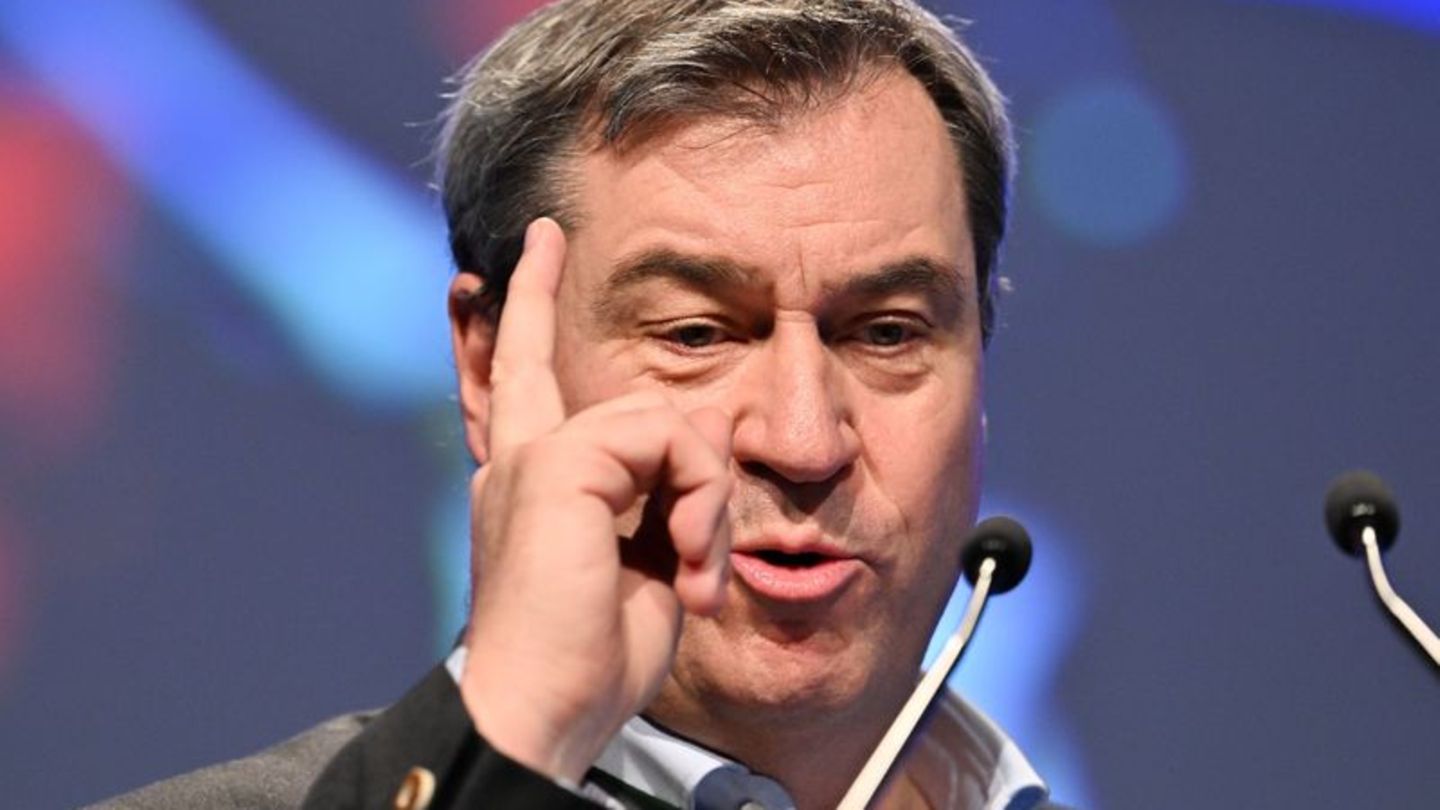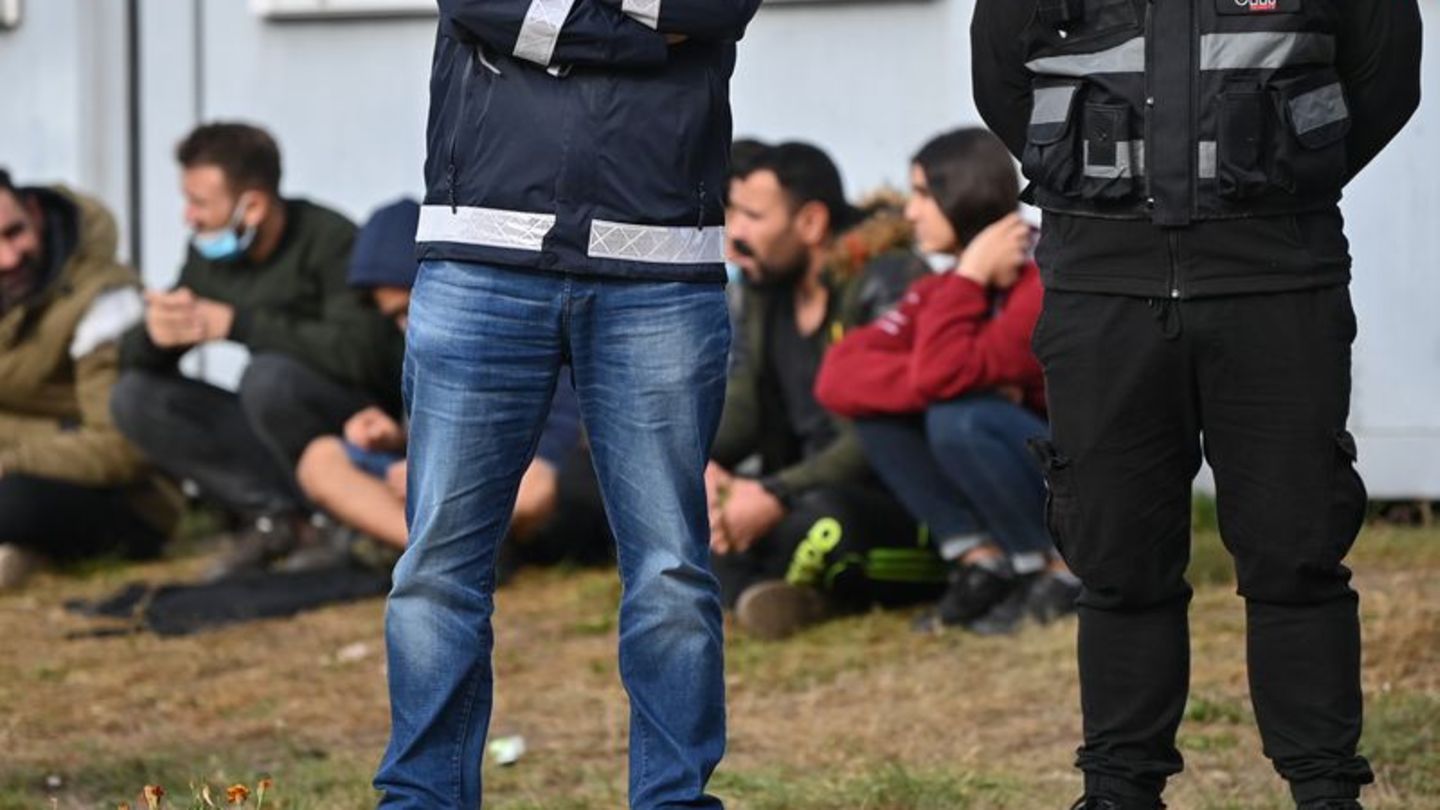She was silent almost as long as Eva-Maria Aichner plays in Linz: In 2017, ex-ski racer Nicola Werdenigg made public abuse of power and sexual assault in Austrian professional skiing after 40 years, Jelinek inspired this “snow white”. Eva-Maria Aichner (68) plays a man in the play, a powerful member of the Austrian Ski Association.
What is the purest thing about theater for you, its original form?
Eva-Maria Aichner: Working together, working on a topic together, regardless of the epoch, and taking the author very seriously, not flooding him or her with extreme directorial ideas. Of course I appreciate translations, but I don’t appreciate it when authors are no longer allowed to speak.
Stories are currently being revised with regard to discrimination or racism. How do you feel about this?
We must surely find a new style here. And during these processes we would actually have to write over them with illuminated letters: Together, please! No ego trips.
Theater must never be a fight?
Exactly. Theater means I tell a story and I want the audience, the whole auditorium, to breathe. That’s the ideal. You take people on a journey that they didn’t expect at all, that surprises them. I always strive for that. It still grabs me, after 50 years, when the lights go out and the curtain rises. And that’s not just exciting for those on stage. I think people should let themselves be infected by this shimmering, the vibrations, the question: what comes next? What is the author telling us? In order to then be able to feel how the room suddenly resonates.
What was given to you when you were starting out about your entitlement to benefits?
My first director, Alfred Stögmüller, said: You know, it doesn’t matter where you step on the stage, whether in Hamburg, Zurich or Linz, you have to give your best performance. If you don’t do that in Linz, you have to go. Top performance is a prerequisite everywhere.
Hard stage material touches viewers. How do you deal with that as someone who is supposed to wear this material like a second skin?
There are situations in which you have to perform very well, so I try not to expose myself to additional situations and productions that are a burden. There are pieces that are stressful because they can reduce faith in the future, hope. I have to be careful here as I get older because I would like to keep my optimistic level and I don’t want it to be scratched.
Is the piece after Jelinek stressful for you?
The story is intense, of course, but Jelinek’s language is so wonderful. One of my favorite phrases in the piece is: “Words can kill, why do they rarely do it?” And in this quality it goes there. I am in love with this language, with its ruthlessness.
Nicola Werdenigg was still a young person when she experienced abuse. How does Jelinek deal with the role of the parents?
How the mothers and the fathers interfere is very strong. The mother stands in front of the room door and says: Do everything he says. The mother stands outside and hears the child crying and screaming and does not know what is happening to him, but the mother says: She needs the number one start. Everyone participates, the whole family benefits when the girl wins. This child’s body is broken, the soul is broken, but everyone is talking about family.
This not only sexualizes the child, but also exploits it for economic reasons and social wealth.
And that hasn’t changed to this day. But the piece is not designed with us in such a way that it only pulls down. You experience an insane amount of stage action, you also have to laugh and smile. You just have to imagine: They more or less built a streak on the stage. It’s a slant, it’s awesome.
Jelinek draws religious and socio-political levels into this text. This makes it understandable to what extent women are still being crushed by these systems. Would you agree with that?
Yes, exactly. And as long as there are no more women in positions of power, hardly anything will be able to change.
Werdenigg waited 40 years to go public. What do you think would have happened if she had talked about it too soon?
They would have scoffed at her and thought her irrelevant. We also say that seven or eight times in a row: “40 years later.” And in my role I even say the sentence once: “For 40 years it went well that one has passed on this woman. What do you want?”
To what extent do you agree when it is said that Jelinek still has a certain prejudice?
Yes, for example, she got stuck in feminism. She is out “The piano player” (1983) did not come out. And that’s just not true. If you look at their text “In the Alps” thinks (a reaction to the Kaprun accident, note), you can see one thing: it shows abuses that should never have happened and which only happened because you always looked the other way.
Do Austria’s theaters play enough Jelinek?
We play them again and again at the Landestheater, but there could be more across the country.
Does it compete with the so-called classics?
Yes, but you have to play the classics because of today’s high school and middle school students. They should know who Shakespeare and Goethe are, what their works mean for society. If we don’t play that, it doesn’t happen enough for them. At school, they are only so influenced by the digital.
Studies on the living conditions of young people show that this generation is very afraid.
And that fear could be taken away from them so easily by giving them hope, nurturing their talents so much that they forget that there is something to be afraid of.
How can direct discussion in a dialogue help here, which is also theater in the broadest sense between the ensemble and the audience?
The direct encounter could probably alleviate this fear very well. One of my favorite quotes from Goethe is this: What is more glorious than gold? The light. And what is more refreshing than the light? The conversation. Even in the dark, a good conversation can take away your fears. I’m very much in favor of all digital achievements, but we mustn’t neglect the haptic, the direct conversation. That’s why I like to make phone calls. On the phone you hear how the other is doing. The voice tells you if you’re just comforting yourself with happiness or if you’re really happy. And with a phone call, you can help right away and react quickly if you sense an idea from the other person. I can’t easily see that in an email.
Snow White (The Invention of the Old Lyre)”
Literature Nobel Prize winner Elfriede Jelinek used Nicola Werdenigg’s descriptions of a world shaped by misogyny, elitism and the pressure to perform (more on the left) as an opportunity to write her “Sportstück” (1998)
to continue.
State theater premiere on May 26th
Directed by Katrin Plötner, there are seven women, including Katharina Hofmann, Theresa Palfi and Angela Waidmann, on the stage of the Linzer Kammerspiele. Appointments until July 4th
www.landestheater-linz.at
Eva Maria Aichner has been a permanent member of the Landestheater ensemble since 1975, and was an apprentice for two years from 1973. Studying interior design (art university) led her to the backstage of a “Tosca” production during a state theater excursion. She was delighted. The acting entrance exam only followed because she thought she would never make it. It turned out differently. Aichner is a passionate speech and voice trainer.
more from culture
When Tina Turner conquered the hearts of the people of Linz
Sales tax on ORF fee legally compliant
From Jazz Gitti to RAF Camora: These artists come to the Danube Island Festival
Arnold Schwarzenegger in “footbar”: The Terminator can also be comical
: Nachrichten

I am an author and journalist who has worked in the entertainment industry for over a decade. I currently work as a news editor at a major news website, and my focus is on covering the latest trends in entertainment. I also write occasional pieces for other outlets, and have authored two books about the entertainment industry.
I am an author and journalist who has worked in the entertainment industry for over a decade. I currently work as a news editor at a major news website, and my focus is on covering the latest trends in entertainment. I also write occasional pieces for other outlets, and have authored two books about the entertainment industry.




